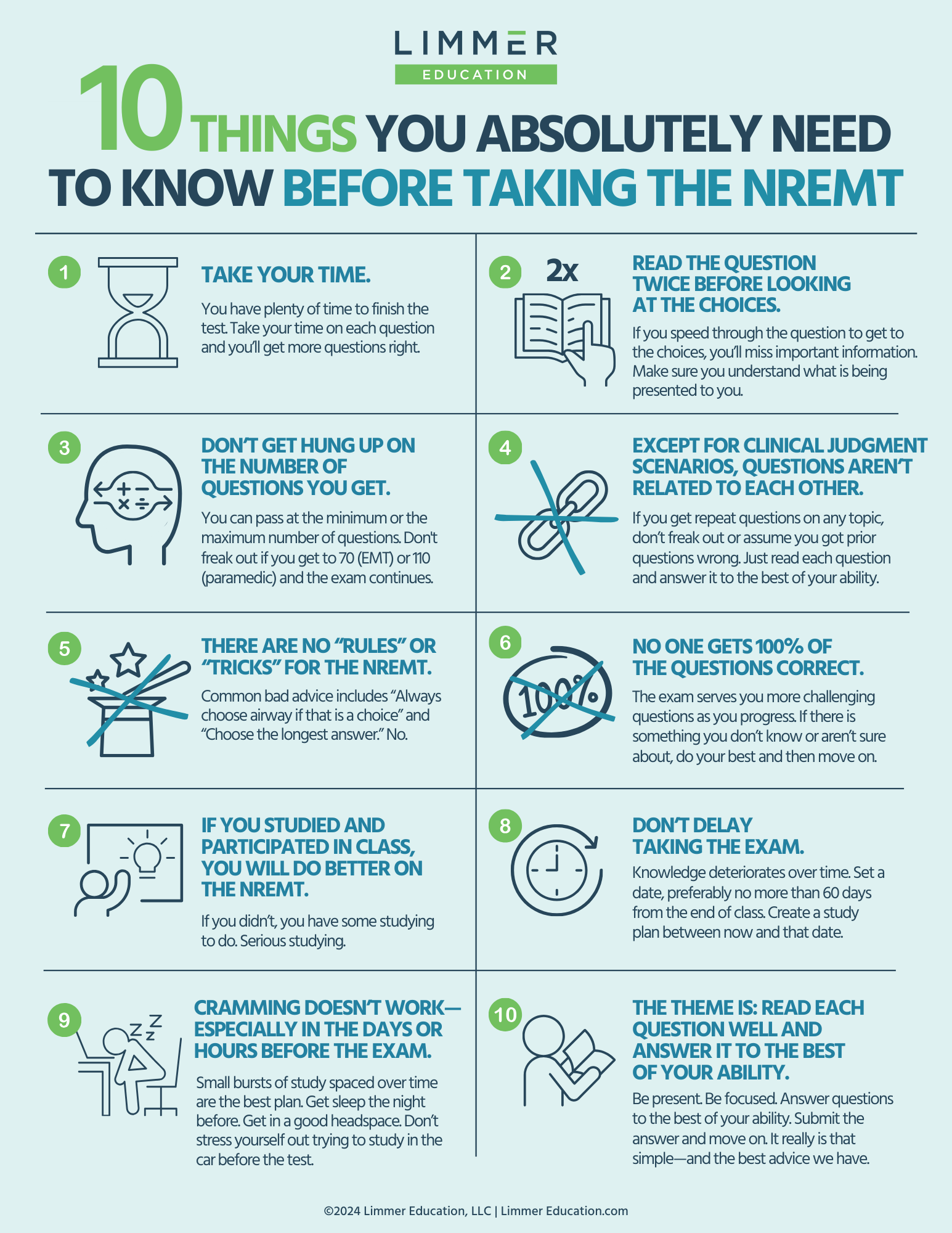
Dr. Bill Young

by Dan Limmer, BS, NRP
Our articles are read by an automated voice. We offer the option to listen to our articles as soon as they are published to enhance accessibility. Issues? Please let us know using the contact form.
You have plenty of time to finish the test. If you take your time on each question and get more questions right, you’ll get fewer questions overall—and have even more time.
Download the infographic of this list.
Candidates often speed through the questions to get to the choices—and miss important information. Reading twice will make sure you slow down and understand what is being presented to you.
You can pass at the minimum or the maximum number of questions. Don’t freak out if you get to 70 (EMT) or 110 (paramedic) and the exam continues. Keep answering questions to the best of your ability.
If you get repeat questions on nuchal cord (or any topic), don’t freak out or assume you got prior questions wrong. You may be getting pilot questions or just similar questions. Read each question and answer it to the best of your ability—and don’t base your answers on anything other than what you see in front of you in that question.
If you’ve been told there are, you have bad information. Common bad advice includes “Always choose airway if that is a choice” and “Choose the longest answer.” No.
The exam serves you more challenging questions as you progress and get answers correct. If there is something you don’t know or aren’t sure about, do your best and then move on. If you are worrying about questions that have gone by, you are taking away from your ability to get the one in front of you correct.
If you didn’t, you have some studying to do. Serious studying.
Knowledge deteriorates over time. Set a date, preferably no more than 60 days from the end of class. Create a study plan between now and that date. Then, study and succeed.
Small bursts of study spaced over time are the best plan. This is called spaced repetition.
The night before the exam, stop studying. You know what you will know. Get sleep the night before the exam. Be good to yourself. Get in a good place psychologically. Don’t stress yourself out trying to study in the car outside the testing center.
Did you notice there’s a theme here? Read each question well and answer it to the best of your ability. This is the single best piece of advice. Be present. Be focused. Answer as well as you can, then submit and move on. It really is that simple—and the best advice we have.


Dr. Bill Young

Limmer Education

Limmer Education